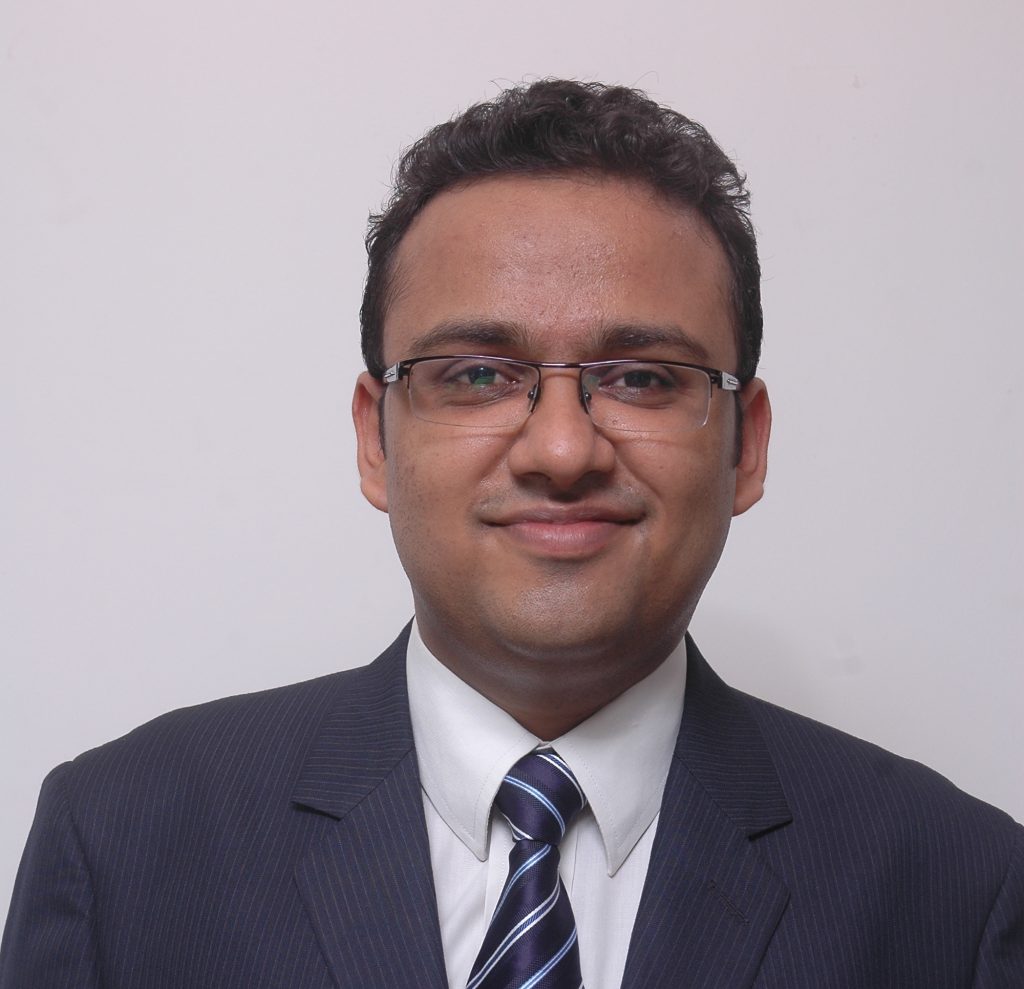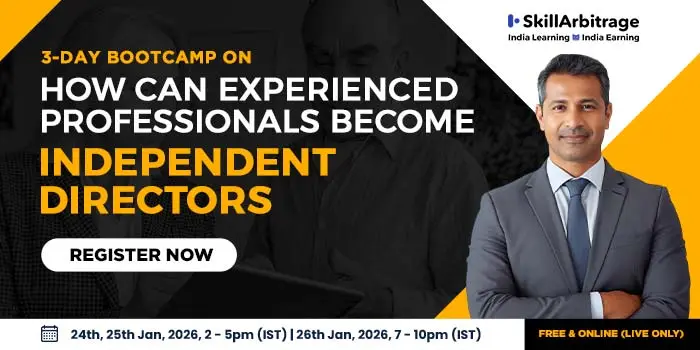This interview has been published by Anshi Mudgal and The SuperLawyer Team

Having spent over a decade in the legal industry, handling diverse areas such as contract management, litigation and arbitration, trademarks, and legal advisory, what drew you toward in-house roles instead of pursuing a traditional litigation career?
Over the years, I found myself more inclined toward roles where legal expertise is closely integrated with business strategy. While litigation offers its own challenges, I was drawn to in-house positions because they allow for ongoing engagement with the business, where legal input can shape decisions early and support long-term objectives. What appealed to me most was the breadth of exposure from contracts and disputes to intellectual property along with the ability to work cross-functionally. I’ve always enjoyed being a trusted advisor, not just resolving issues but helping prevent them through practical, forward-looking counsel. In-house legal work gave me the platform to apply the law in a commercially meaningful way, contribute to enterprise-wide goals, and build deeper relationships across the organization. That level of involvement and impact is what truly motivates me.
Could you share a bit about your law school journey? What inspired you to pursue a career in law, and how did your LL.M. in Corporate & Financial Law shape your legal perspective and contribute to your long-term growth?
My journey through law school was both intellectually stimulating and personally grounding—it confirmed that law was the right path for me. I was drawn to the clarity and structure that legal thinking brings, especially in navigating complex business scenarios. Early on, I realized I wanted to work at the intersection of law and commerce, where legal insight directly influences strategic decisions.
What led me to pursue an LL.M. in Corporate & Financial Law from O.P. Jindal Global University (OPJGU) was a desire to deepen my expertise in areas that shape how businesses operate—corporate governance, M&A, financial regulation and cross-border transactions. The program not only sharpened my technical knowledge but also gave me a broader, international outlook, which has been essential in working with diverse industries and stakeholders. This academic grounding has played a pivotal role in my in-house journey. It equipped me to approach legal challenges with a commercial mindset, engage confidently with leadership, and contribute to sustainable, compliant business growth. OPJGU was established as a philanthropic initiative of its Founding Chancellor, Mr. Naveen Jindal, and I am truly indebted to him for establishing a world class university in India which has shaped the future of thousands of students globally including helping me in becoming a successful in-house counsel and working for giants like JSPL, BPCL, ReNew and GMR.
You began your career with an in-house role, a path not many young professionals take right away. What early experiences or challenges helped build your legal foundation and shape your approach to corporate practice?
Starting my legal career in an in-house role gave me a unique head start as it allowed me to understand the commercial realities of legal work from day one. Rather than focusing solely on theory or litigation procedure, I was immediately immersed in how legal decisions impact daily business operations and long-term strategy. One of the earliest challenges I faced was learning to tailor legal advice in a way that was both accurate and actionable for non-legal stakeholders. It pushed me to think beyond just identifying issues. I had to propose workable solutions that aligned with the company’s goals and risk appetite. Those early responsibilities, whether it was reviewing contracts, supporting compliance efforts, or advising internal teams, taught me to be responsive, business-minded, and pragmatic. They laid the groundwork for the way I practice today with a clear focus on enabling the business while managing legal risk thoughtfully.
Over the years, you’ve held in-house roles across various organizations. How has each experience contributed to your legal and leadership development, and in what ways do these roles continue to influence your current position?
Every in-house role I’ve taken on has added a different layer to my legal and leadership journey. Working across varied sectors and organizations has helped me develop a broad perspective and a flexible approach to handling legal challenges. It’s taught me to quickly understand business priorities and align legal strategies accordingly. Along the way, I’ve learned to navigate cross-functional dynamics, manage stakeholder expectations, and lead initiatives that have both legal and commercial impact. These collective experiences continue to influence how I work today; whether it’s offering practical, business-oriented legal advice, leading teams, or mentoring junior colleagues. They’ve shaped me into a legal professional who’s not just reactive, but someone who adds value proactively across the business.
At GMR, you manage end-to-end contracts for the entire non-aero business across India. What are some of the recurring challenges you face during contract negotiations in this sector, and how do you typically address them?
Working in the non-aero space at GMR Airports, one of the recurring challenges during contract negotiations is managing the varied expectations of diverse stakeholders from retail and F&B partners to service providers while staying within a strict regulatory framework. Each agreement involves a careful balance between commercial viability, operational flexibility, and legal compliance. Negotiations often involve complex revenue-sharing models and long-term commitments, which require clarity around deliverables, risk allocation, and exit rights. It can also be challenging to tailor terms that satisfy business teams yet remain aligned with airport concession requirements and regulatory obligations. To navigate this, I intend to focus on building structured, practical agreements with well-defined roles and responsibilities. I work closely with the internal teams to ensure business goals are captured clearly, while also ensuring the contract holds up to legal and compliance standards.
What are the key legal complexities you encounter during due diligence in airport-sector transactions, especially when working with international investors or structuring joint ventures?
In my opinion, due diligence in the airport sector, particularly when dealing with global investors or joint ventures, is layered and complex due to the regulated nature of airport operations and the involvement of public authorities. The first area of scrutiny is usually the concession agreement where we assess whether rights can be transferred, what limitations exist, and whether any government approvals could delay or derail the transaction. Issues like land tenure, encumbrances, and use restrictions are also critical, especially since many airport projects are developed on leased government land or under public-private partnership models. These factors often carry legal and operational risks that must be identified early. When foreign investors are involved, we also have to navigate FDI regulations, security clearance requirements, and ensure the investment structure complies with both aviation sector guidelines and company law. In joint venture setups, we focus on clarity around governance, economic rights, dispute resolution, and exit options, which can get intricate in a sector with long concession cycles. To address all this, we ensure to carry out detailed legal risk mapping, engage with stakeholders to understand regulatory expectations, and build robust representations and warranties into the deal documents. This helps ensure transparency and long-term sustainability for all parties involved.
What advice would you offer to young legal professionals aiming to build a career in corporate law or enter in-house roles early on? Are there particular skills or experiences you believe they should focus on?
For those starting out in corporate law or looking to join an in-house team early in their careers, I’d recommend focusing on building a well-rounded foundation not just in legal knowledge, but also in understanding how businesses function. Getting comfortable with contracts, compliance, and risk assessment early on will give you a strong advantage. It’s equally important to develop clear and concise communication skills, because in-house lawyers often act as bridges between legal and non-legal teams. I’d also advise young professionals to prioritize adaptability and commercial thinking and the ability to align legal advice with business goals is key in any corporate role. Real-world exposure, even through internships or secondments, can be more valuable than purely academic achievements. Lastly, find mentors, ask questions, and stay engaged with both legal and business trends. The more proactive and curious you are, the faster you’ll grow into a trusted advisor.
What guiding principle has stayed with you throughout your career, and how does it shape your professional outlook today? What is your vision for the future, both personally and for the legal profession?
The principle that has guided me from the beginning is: “Blend legal precision with business pragmatism.” This approach has helped me stay grounded in legal integrity while ensuring my advice adds real value to the business. It’s about being a protector of the organization’s interests, but also a facilitator of its goals. Even today, I focus on being solution-oriented and commercially aligned, especially in high-stakes or cross-functional matters. I believe that legal professionals should be trusted not just for their knowledge, but for their ability to guide outcomes and build confidence. In the future, I see myself stepping further into leadership and mentorship roles, using my experience to support both the organization and younger legal talent. As for the profession, I envision a shift toward more agile, tech-savvy legal teams, i.e. the ones that integrate deeply with business strategy and act as co-creators of value, not just risk managers.
Get in touch with Saarth Dhingra –



